Nearly 200 Syrian families have joined a collective to find answers about their loved ones who disappeared in Libya on the way to Europe. Since the fall of the Assad regime, the families have been organizing protests to focus the attention of the transitional government – and the EU which financially supports Libya – on their cause. From the living rooms of Damascus to Daraa, InfoMigrants gathered stories of their personal and collective battles.
Five portraits hang above the sofa, next to a fan which works intermittently. The same man appears in each of them, 26-year-old Mohamed Kassem Al-Khobi. He seems to watch over the room’s inhabitants, in what was once his bedroom. On this day in September, he would have seen the family cat languorously stretch toward a ray of light coming in through the small opening of the door. He would have seen his sisters, with their furtive comings and goings between the kitchen and his room. He also would have seen his mother, sitting cross-legged on the sofa.
Aeda Mohamed Albaseri is silent. Her face seems frozen in time, like a Madonna. She lights a cigarette, inhales a few breaths, and then taps the ash into a tray at the foot of the sofa. "I smoke to forget about my torments," she says, by way of introduction. The 56-year-old and former administrative employee at the University of Damascus, cares for each of Mohamed’s photos. "Every time one of them gets damaged by the sun or the weather, I replace it with a new one. I see his face wherever I go."
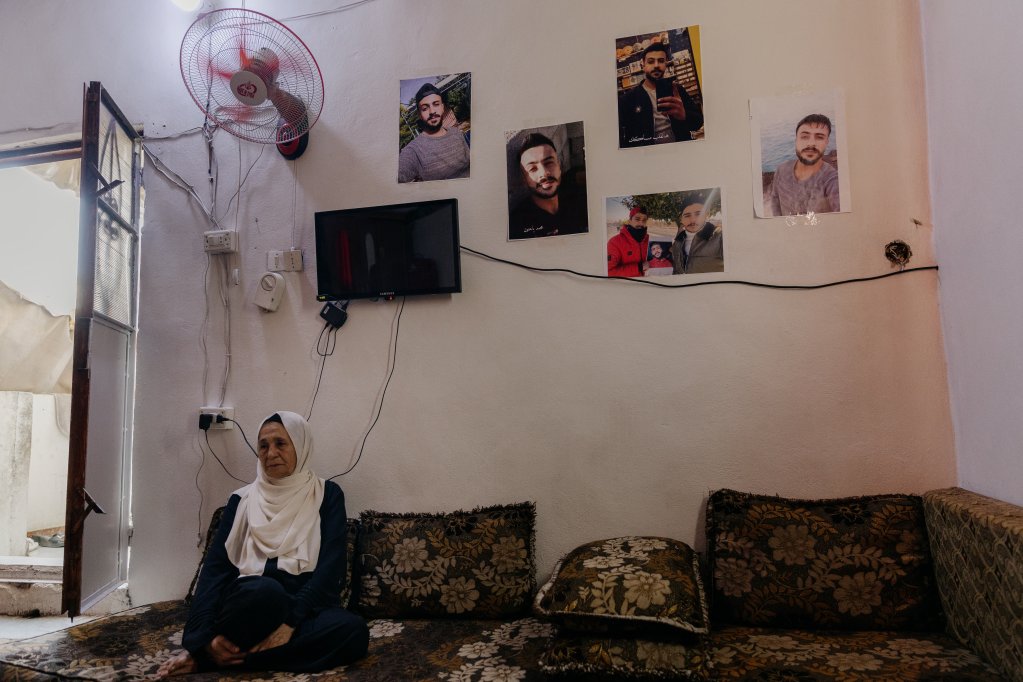
Mohamed was her only son. He disappeared at the age of 26, on a boat that had left Libya on October 31, 2023. "I haven’t experienced a single day where I was happy, or anything good since then," says Aeda. "I pray for him every day. He was truly a good person, a beautiful person, polite, with strong moral values. Everyone he met loved him."
'A gift like this one cannot be taken away from me'
The young man tried to make a living as a barber during the war in Syria. His father died in a car accident in 2019. The only token of his existence is a chalk drawing of a bird of prey, perched on its branch, on the wall in Mohamed’s room. With his father’s death, providing for the family became increasingly complicated. "Mohamed saw his cousins succeed after they moved to Europe. He hoped to reach his older sister, who became a psychologist in Glasgow, Scotland. He also hoped to support her because she was going through a complicated period with her ex-husband," says Rana, one of Mohamed’s other sisters.
About thirty people disappeared on the same boat as Mohamed, says Rana and the other families that InfoMigrants encountered. "We aren't the only ones going through this. There are many other boys, good people, who have also disappeared. It was destiny. It’s what God planned for us. Maybe it’s a test. We are pious people, we should keep our faith," says Aeda.
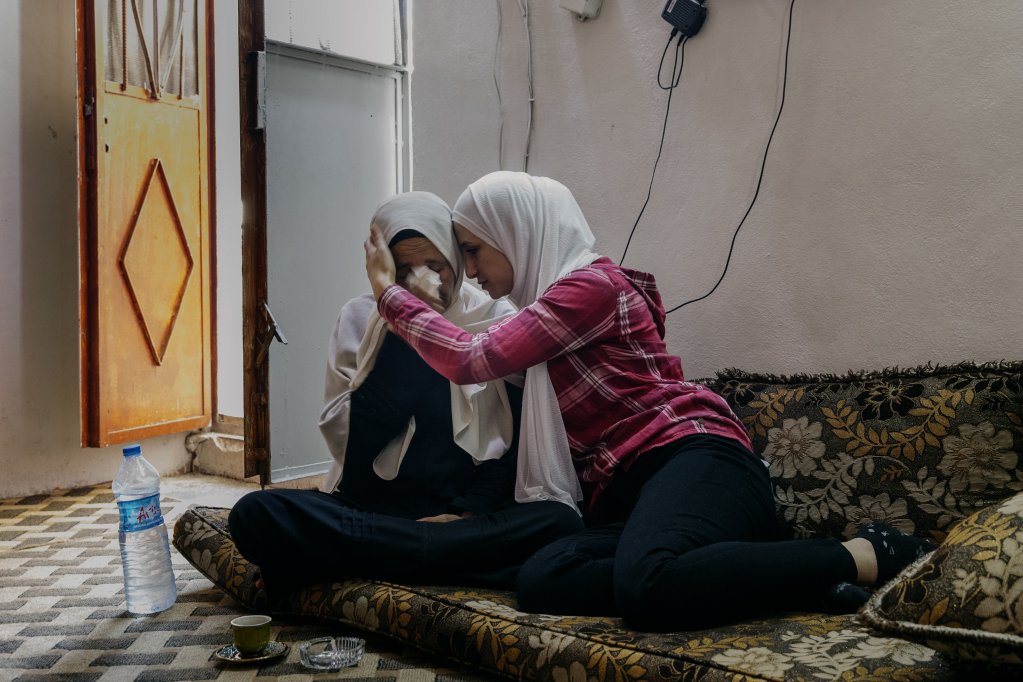
Mohamed was born on March 20, 1999. His mother remembers: "It was Mother's Day in Syria. I was pregnant with him for ten months. Such a gift can't be taken away from me like that. He wouldn't leave me alone like this. I keep hoping; I have to stay strong for my daughters and also for my son, if he ever comes back."
Daraa, the center of the families' struggle
"The day my brother returns, I'll go to Great Britain," says Rana, Mohamed's sister, from the front seat of a car which speeds through the streets of Daraa, in southern Syria. The vehicle weaves between dozens of armed vehicules and a dusty amusement park. Further on, barely rebuilt houses stand amid a field of rubble. The young woman in her thirties, has a warm smile and gray-green eyes that often fill up with emotion. She hopes to join her teenage son in London, where he went to live with his father. "I also love to travel. Yet for the moment, my brother's cause is more important than anything," she says.
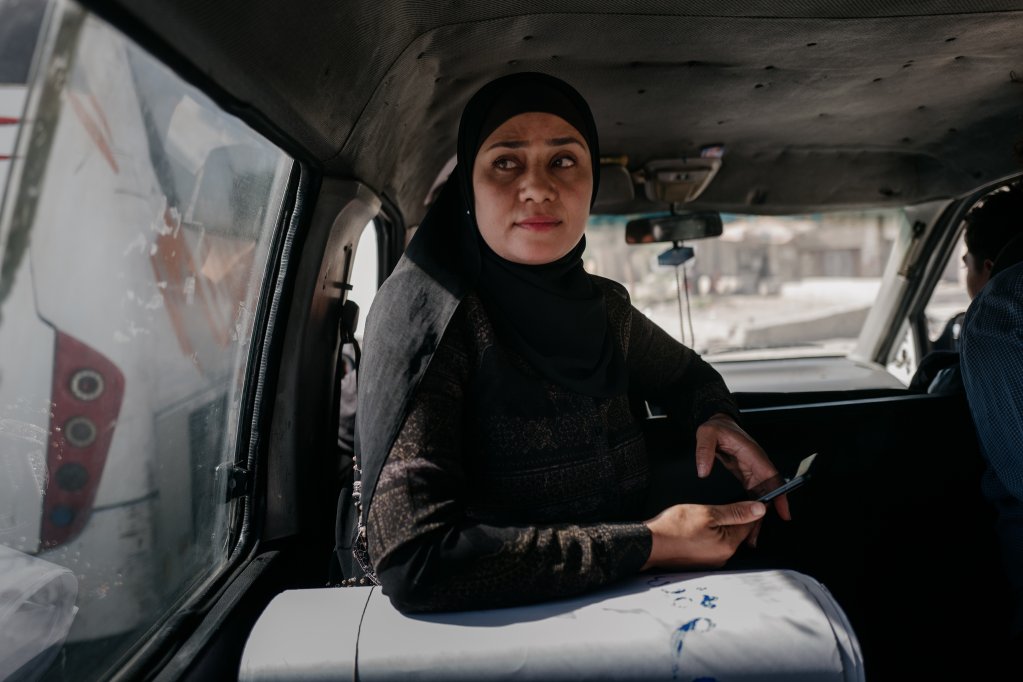
Most of the families with relatives who disappeared on the boat on October 31, 2023, come from Daraa. After finding the families of other missing people, Rana created a WhatsApp group to share the clues each of them have been trying to gather. The group gradually expanded. It brings together 200 relatives of those who disappeared in Libya. Many of these families protested on October 8 in Daraa, and again on September 22, in front of the Ministry of Foreign Affairs in Damascus.
Taking care of the missing person's children 'as if they were my own'
Rana joins nine other families with missing relatives in Daraa one day in September. They meet in the living room of the Alkoov family. The family lost two young men on the same boat as Rana’s brother. One of them, Mohammad Bahaa Marwan Alkoov, was only 17 years old. A high-school student, he had just finished an internship for hair styling in Damascus. "Hair dressing was his hobby," says his wife Elham, seated on the couch, between several other women, sisters and mothers of missing people. "His departure was a surprise," says Nour, one of Mohammad’s three sisters, who was also present. "I was shocked and disoriented when I learned he had left. He wanted to follow his friends. We wouldn’t have been able to stop him," says Elham. "Like his sisters, I hope he will come back soon."
On the other side of the living room, a man in his 50s smokes, his arm nonchalantly posed on an armrest. He keeps his box of cigarettes in the half-open pocket of his black shirt. His disappearance story is the most recent. "We lost contact with my nephew an hour before he left the Libyan coast on August 26, 2024," says Abd Elah Mohammad Albaradan. His nephew, Rami Abdelkader, a farmer, was 29 when he went missing. He left behind a wife and three children in Daraa. The uncle, an agricultural engineer, took the family under his wing. "It’s very painful for his children who love him. Their father was well educated and social. He loved taking them out and organizing picnics. Now I’m taking care of them as if they were mine."
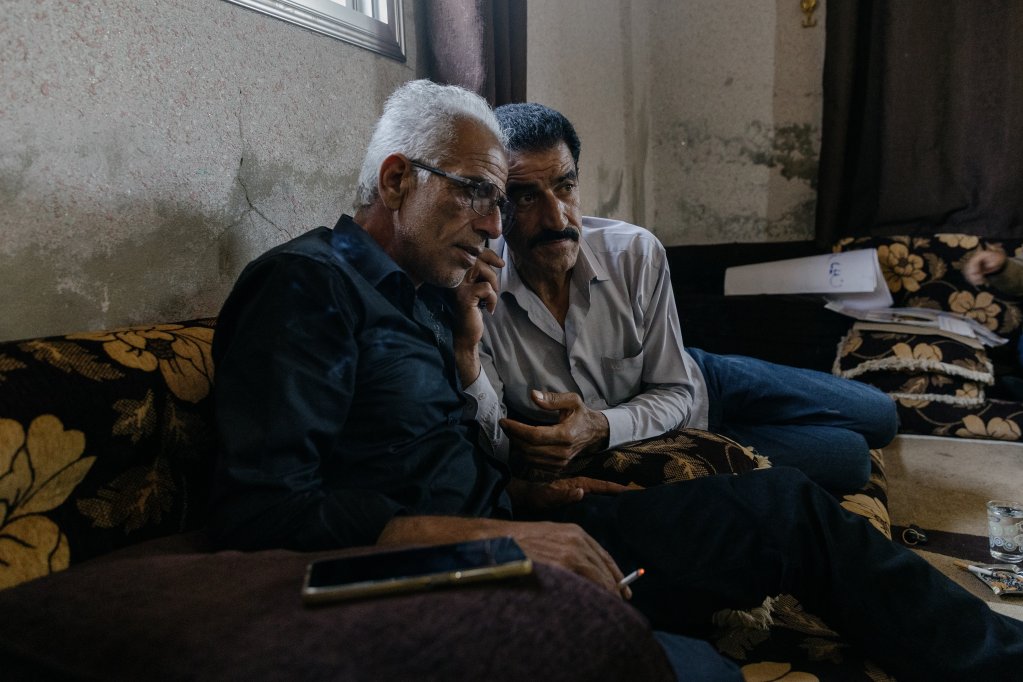
Read AlsoEU asylum applications drop by 23% in first half of 2025
Lives suspended in limbo
Daraa lost many of its children on August 26, 2024. Seated at a café terrace in Old Damascus, Huda Ahmad Alrabdawi and her husband, Ahmad Saleh Almubarak, discreetly share a photo of their three sons. It's an ordinary snapshot of three young men, standing shoulder to shoulder. They are smiling and wearing Real Madrid jerseys. "Abaan, the youngest," his mother says, "dreamed of being a soccer player. At 14, he followed his two brothers, Mohammad, 21, and Hamza, 20, who sought to pursue their studies in Europe." With a heavy heart, she allowed her three sons to leave on August 17, 2024. They parted ways at Damascus airport, and she bid farewell to all of them, including her youngest, who was too attached to his two older brothers to live without them.
The regime of former president Bashar al-Assad ravaged southern Damascus during the war. The family lived in the region, and the boys' future had been reduced to ashes. Hamza and Mohammad could no longer continue their computer science studies at the University of Damascus. Their parents describe them as "very dedicated to their studies and well educated". Yet the numerous checkpoints set up along the way to the university, the endless security checks, and the constant suspicion discouraged the two young men from attending classes each morning.
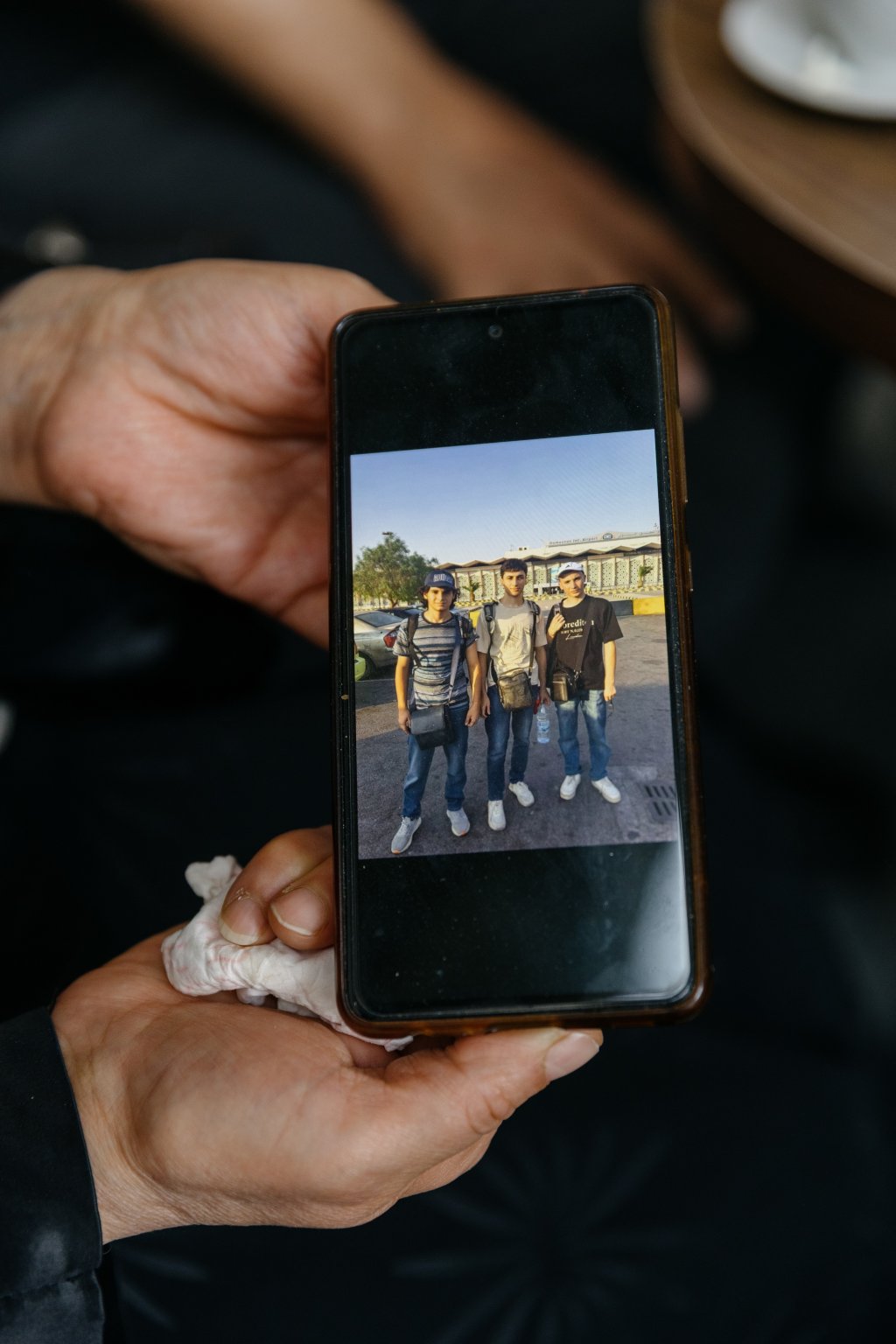
The three boys sent a message to their parents on August 26, 2024, as they were about to board a boat about to leave the coast of Tripoli, Libya: "We're leaving the hotel, the smuggler told us to turn off our phones." It would be their last message. The couple anxiously waited for four days, before the smuggler contacted them. He told them their three children had been rescued by a ship belonging to the humanitarian non-governmental organization (NGO) Emergency. They searched high and low for scraps of information.
The couple managed to contact a man who had been on the rescue ship that night, who told them he hadn't seen the three boys. The smuggler eventually changed his version of the story and claimed that their children had died. "He told us to stop looking for them, that they had been eaten by the fish. We were desperate at that moment, but we still kept the hope that they were alive. There was no evidence that they had drowned in the sea, no evidence at all," Ahmad Saleh repeated.
The lack of evidence led the family to a final hypothesis: that their children had been kidnapped by a militia and were detained in prison.
Read Also
Sudanese war refugees recount Libya horrors
'Families of the missing are like the living dead'
Fatima Mohammad Kaer Tru lost track of her 29-year-old son, Abd Almalek Albahloul, on March 22, 2024. Before she learned about the network of families created by Rana, she investigated on her own. Her findings were unclear: he left Libya and was then rescued by an NGO in the Mediterranean. "I contacted people who were on the rescue boat; there were different versions, so I'm not sure of anything," she said.
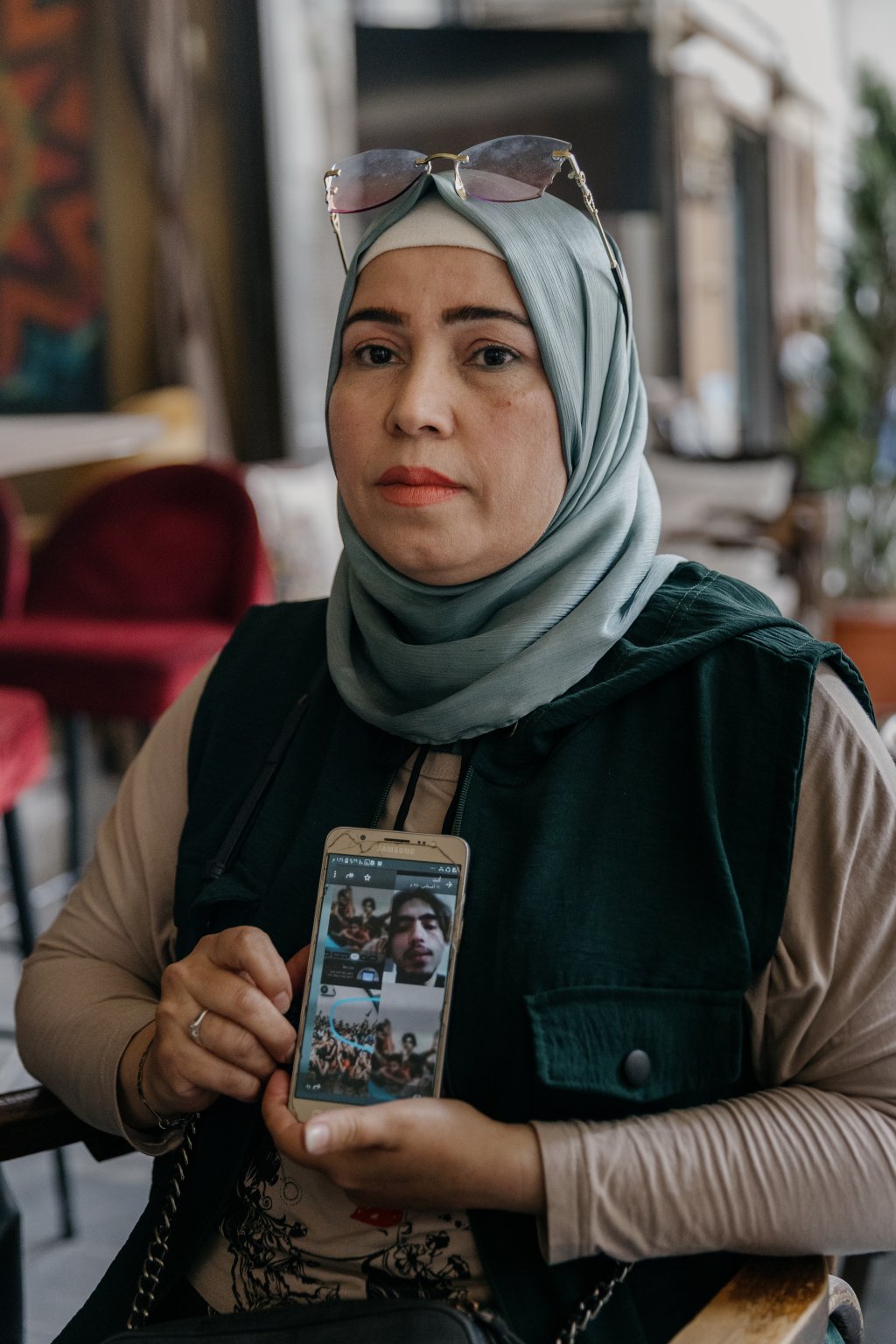
Hope was rekindled only three months after her son's disappearance. "I saw a video online which had been filmed in a Libyan prison." A screenshot of the video on her phone revealed a figure behind a crowd of men sitting on the ground, their hands in the air. She was convinced it was her son. She now lives with the anguish of knowing her son is imprisoned in a Libyan jail. "The prisons in Libya are horrible; there are diseases, lice, torture, who knows?" said the 48-year-old woman. Traumatized, she said she is experiencing problems with concentration and memory loss ever since her son disappeared.
"Families of the missing are like the living dead," she says. Protesting with other families, as well as sharing her research, brings her relief: "It's important to connect with other families. We share our pain, our sorrows." Yet the uncertainty surrounding her son's fate plunged her into a despair that nothing could soothe, not even the freedom regained since the fall of the regime. "Now that Syria is liberated, we want our children to return to Syria to live here. This happiness, these celebrations, are not complete, because each family has lost one or more children: in Sednaya, in the prisons, or on the road towards Europe."
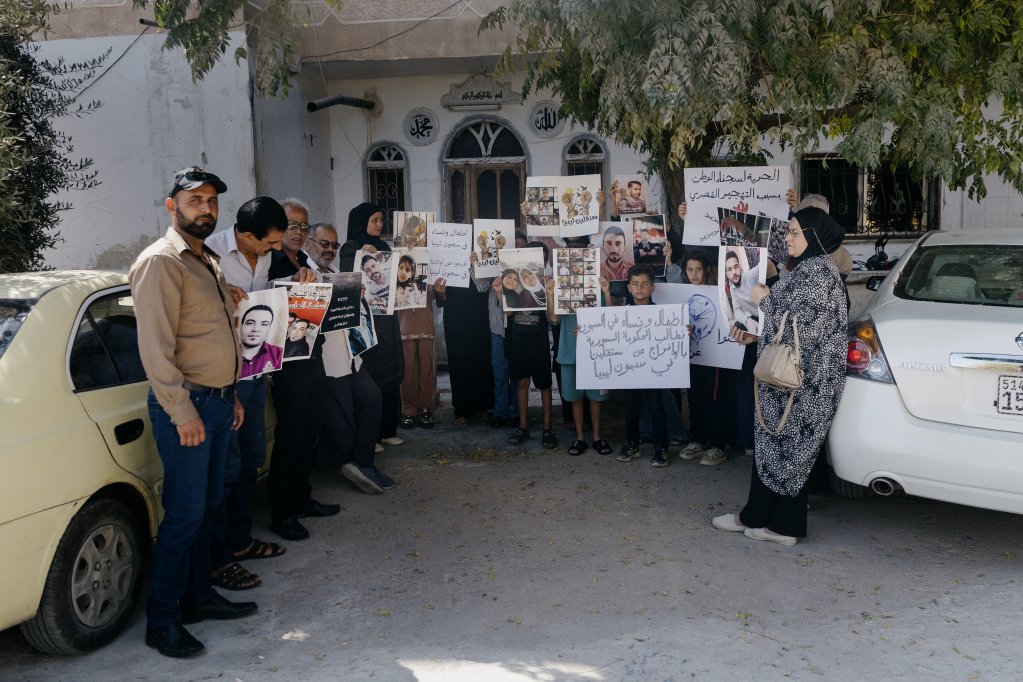
Read AlsoLeaving Libya: Syrian and Bangladeshi nationals fly back to their home countries
